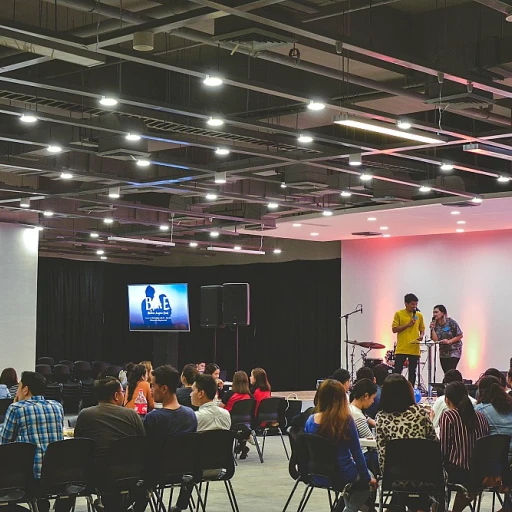
What is a turn offer in hr job interviews
Understanding the "Turn Offer" Moment
In the world of HR job interviews, a "turn offer" refers to the pivotal point when a candidate is presented with a job offer and must decide whether to accept or decline the position. This moment is crucial for both the candidate and the hiring manager. It is not just about saying yes or no; it’s about making a thoughtful decision that aligns with your career goals and the company’s needs.
When you reach this stage in the hiring process, it means the company has invested significant time and resources in evaluating your fit for the role. The offer is a sign that you have successfully navigated the interview process and demonstrated your potential to contribute to the team. However, turning down a job offer—or even considering it—requires careful consideration. It’s important to weigh the opportunity against your long-term career objectives, work-life balance, and the values of the organization.
Why the Turn Offer Matters
Deciding to accept or decline a job offer can impact your professional reputation and future opportunities. The way you handle this moment can leave a lasting impression on the hiring manager and the company. Whether you choose to accept the job, decline the offer, or request more time for consideration, your response should reflect professionalism and respect for the process.
- It’s common for candidates to feel pressure during this stage, especially if they are juggling multiple offers or still exploring other roles.
- How you communicate your decision—by email or in person—can influence how the company views you in the future.
- Keeping the door open for future opportunities is often wise, even if you have decided to decline the offer.
Understanding the dynamics of a turn offer helps candidates navigate the hiring process with confidence. For more insights into how this fits into the broader journey of starting a new job, you can read about mastering the onboarding process and what HR interview candidates need to know.
Common scenarios when a turn offer happens
When Turn Offers Typically Arise
In the hiring process, a "turn offer" refers to the moment when a candidate is presented with a job offer but chooses to decline it. This situation can happen for a variety of reasons, and understanding the common scenarios helps both candidates and hiring managers navigate the interview process more effectively.
- Multiple Job Offers: Candidates often receive more than one job offer during their job search. After careful consideration, they may decide to decline one offer in favor of another that better aligns with their career goals or offers a more attractive role, position, or company culture.
- Misalignment with Career Goals: Sometimes, after learning more about the job title, responsibilities, or the company during the interview process, candidates realize the opportunity does not fit their long-term career plans. This can lead to a decision to turn down the offer, even if the hiring manager and team were impressive.
- Compensation and Benefits: If the offer does not meet the candidate’s expectations for salary, benefits, or work-life balance, they may decide to decline the job. Negotiations may occur, but if the company cannot meet the candidate’s needs, a turn offer is likely.
- Company Culture or Values: During interviews, candidates often assess whether the company’s values and culture align with their own. If there is a disconnect, candidates may choose to decline the offer, prioritizing a workplace where they feel they can thrive.
- Timing and Personal Circumstances: Sometimes, personal reasons or timing issues—such as relocation, family commitments, or changes in life circumstances—lead candidates to turn down a job offer, even if the position itself is appealing.
It’s important for candidates to handle these situations professionally, keeping the door open for future opportunities with the company. A thoughtful email to the hiring manager, expressing appreciation for the time and consideration, can help maintain a positive relationship. For more insights on how to demonstrate your value during the interview process, check out this guide on how to show you are management material in HR job interviews.
How candidates can prepare for a turn offer
Getting Ready for the Unexpected Turn
When you enter the interview process for a new role, it’s easy to focus only on how to impress the hiring manager and land the job offer. But sometimes, the conversation takes a turn—maybe the company extends an offer sooner than expected, or you realize the position isn’t the right fit for your career goals. Preparing for these moments can help you respond with confidence and professionalism.
- Clarify your priorities: Before the interview, reflect on what matters most in your next job. Consider the job title, company culture, work-life balance, and long-term career opportunities. This self-awareness will guide your decision if you need to decline an offer or ask for more time.
- Research the company: Understanding the company’s values, recent changes, and hiring process can help you anticipate the types of offers or turns that might come up. This preparation also shows the hiring manager you’re serious about the opportunity.
- Prepare your responses: Practice how you’ll respond if you receive an offer on the spot or if you decide to decline. Having a few phrases ready—such as expressing appreciation for the offer and requesting time for careful consideration—will help you stay composed.
- Know your deal-breakers: Identify in advance what would make you decline a job offer. This could be salary, benefits, or the nature of the position. Being clear on these points helps you avoid making a rushed decision you might regret.
- Plan your communication: If you need to decline an offer, do so respectfully and professionally, ideally by email. Thank the company for their time and consideration, and if appropriate, express interest in keeping the door open for future opportunities.
Remember, turning down a job offer or asking for more time is a normal part of the hiring process. Candidates who handle these situations thoughtfully are more likely to maintain a positive relationship with the company and the hiring manager. For more tips on navigating these moments, check out this guide on how to navigate HR job interviews.
Mistakes to avoid when responding to a turn offer
Common Pitfalls When Responding to a Turn Offer
When you receive a job offer during the interview process, your response can shape your professional reputation and future opportunities. Many candidates make mistakes that can impact their career goals or relationships with the company. Here are some frequent errors to watch out for:
- Responding Too Quickly or Without Careful Consideration
It’s tempting to answer right away, especially if you feel pressured by the hiring manager. However, taking time to evaluate the offer, the role, and how it fits your career path is crucial. Rushed decisions can lead to regret or accepting a position that doesn’t align with your long-term goals. - Being Vague or Non-Committal
Some candidates try to keep the door open by giving unclear answers. While it’s important to consider your options, being too ambiguous can frustrate the hiring manager and harm your credibility. If you need time, politely request it and specify when you’ll provide a decision. - Declining the Offer Poorly
Declining a job offer by email or phone requires professionalism. Avoid generic or impersonal messages. Express appreciation for the opportunity, acknowledge the time and effort invested by the company, and briefly explain your decision if appropriate. This keeps the relationship positive for future opportunities. - Burning Bridges
Even if you’ve decided to decline the offer, maintain respect and gratitude. The hiring process is often interconnected, and hiring managers may remember how you handled the situation. Keeping the door open for future roles or positions is always wise. - Not Asking Questions
If you’re unsure about aspects of the job, company culture, or the position itself, don’t hesitate to ask. Failing to clarify important details can lead to misunderstandings or accepting a job that isn’t the right fit.
How to Avoid These Mistakes
- Take time for careful consideration before responding.
- Communicate clearly and professionally, whether you accept or decline the offer.
- Show appreciation for the company’s time and the opportunity, regardless of your decision.
- Keep your response timely to respect the hiring process.
- Stay honest about your intentions, but always be polite and constructive.
By avoiding these common mistakes, candidates can navigate the turn offer stage with confidence, keeping their career options open and maintaining strong professional relationships for the future.
The interviewer’s perspective on a turn offer
What Hiring Managers Think When You Turn Down a Job Offer
When a candidate decides to decline a job offer, it’s not just a simple “no” for the company. Hiring managers and HR professionals invest significant time and resources into the hiring process. They review applications, conduct interviews, and carefully consider each candidate’s fit for the role and company culture. So, when a turn offer happens, it can trigger a range of reactions and next steps.- Understanding the Candidate’s Decision: Most hiring managers appreciate when candidates take the time to communicate their decision clearly and respectfully. A thoughtful email explaining your reasons—whether it’s about career goals, another opportunity, or a better fit elsewhere—shows professionalism and respect for the process.
- Impact on the Hiring Process: Declining a job offer can mean the company has to revisit their shortlist or even restart the search. This can delay filling the position, which may impact the team and ongoing projects. However, a timely and considerate response helps minimize disruption.
- Keeping the Door Open: Many hiring managers value candidates who handle declining job offers with tact. Expressing appreciation for the offer and the time invested, and leaving the door open for future opportunities, can leave a positive impression. This can be beneficial if you want to be considered for another role or work with the company later in your career.
- Feedback and Reflection: Some companies may ask for feedback on why you decided to decline. This helps them improve their hiring process and better understand what candidates are looking for in a job or company.
Strategies for making the most of a turn offer
Communicating Your Decision Thoughtfully
When you have decided to decline a job offer during the interview process, how you communicate your decision can impact your professional reputation. Always express appreciation for the opportunity and the time the hiring manager and team invested in you. A polite and concise email is often the best way to decline an offer. Make sure to mention that you gave the offer careful consideration and that your decision aligns with your career goals or current situation.Keeping the Door Open for Future Opportunities
Declining a job offer does not have to mean ending your relationship with the company. If you found the company culture appealing or see potential for future roles, let the hiring manager know you would like to keep the door open for future opportunities. This approach shows professionalism and respect for the hiring process. It also leaves room for you to be considered for another position that might be a better fit down the line.Reflecting on the Interview Process
Take time to reflect on what you learned about the company, the role, and your own priorities during the interview process. This reflection can help you refine your job search and clarify what you are looking for in your next position. Consider what aspects of the offer or company led you to decline, and use that insight to guide your future applications and interviews.Building a Positive Professional Network
Even after declining a job, you can maintain a positive relationship with the hiring manager and company. Connect on professional networks or send a follow-up message expressing your appreciation for their consideration. This can help you stay on their radar for future roles and expand your professional network.- Be prompt and clear in your communication when you decide to decline an offer.
- Express gratitude for the opportunity and the time invested in you.
- State your decision respectfully, referencing your career goals or personal considerations.
- Offer to stay in touch for future opportunities if you are interested.
- Reflect on the process to inform your future job search and interviews.
By handling a turn offer with professionalism and respect, candidates can ensure they leave a positive impression, keep doors open for future opportunities, and continue to grow their career network.













